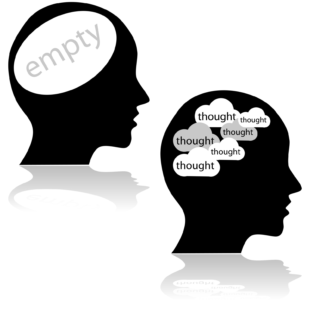In today’s rapidly evolving world, mindfulness is increasingly recognized as a fundamental practice for enhancing mental clarity, emotional resilience, and overall well-being. For psychologists and coaches, integrating mindfulness into their practices not only benefits their clients but also contributes to their own personal and professional growth.
This comprehensive guide delves into the application of mindfulness in both therapy and coaching, offering advanced techniques and insights to elevate your practice.
What is Mindfulness?

Mindfulness is defined as the practice of maintaining a heightened awareness of the present moment. It involves observing one’s thoughts, emotions, bodily sensations, and surroundings without judgment.
This practice fosters a sense of calm and acceptance, which is crucial for emotional balance and mental clarity.
Mindfulness for Self-Growth
Practicing mindfulness offers substantial benefits for psychologists and coaches, enhancing both personal and professional development.
Benefits of Mindfulness for Self-Growth:
- Enhanced Self-Awareness: Mindfulness cultivates a deeper understanding of your own thoughts, emotions, and behaviors, leading to more effective interpersonal interactions and self-management.
- Improved Emotional Resilience: Regular mindfulness practice builds emotional stability, helping you manage stress and navigate challenging situations with greater ease.
- Increased Empathy and Connection: Being fully present during interactions improves empathy, strengthens professional relationships, and enhances the therapeutic or coaching process.

Practical Steps for Self-Growth:
- Daily Mindfulness Practice: Integrate short mindfulness exercises, such as mindful breathing or guided meditation, into your daily routine to build and maintain your practice.
- Reflective Journaling: Use mindfulness to reflect on your experiences and emotional responses, gaining valuable insights that promote personal growth.
- Mindful Interaction: Apply mindfulness during client and colleague interactions to improve communication and foster deeper connections.
Application of Mindfulness in Coaching
In coaching, mindfulness is a powerful tool for helping clients gain clarity about their present situation and work toward their desired outcomes. By focusing on the present moment, coaches can guide clients in identifying current thought patterns and behaviors that may be hindering their progress.

Key Benefits of Mindfulness in Coaching
- Clarity and Focus: Mindfulness helps clients achieve greater clarity on their goals and the steps needed to reach them. It reduces distractions and improves goal-setting by enhancing present-moment awareness.
- Emotional Regulation: By staying present, clients can better manage their emotions, leading to improved decision-making and problem-solving capabilities.
- Enhanced Self-Awareness: Mindfulness practices increase clients’ awareness of their strengths and areas for improvement, facilitating personal development and achievement.
Techniques for Mindfulness in Coaching
- Mindful Goal Setting: Guide clients in setting goals with a clear understanding of their current state and desired outcomes, ensuring that goals are realistic and attainable.
- Present-Moment Awareness Exercises: Employ exercises such as mindfulness meditation or body scans to help clients improve their concentration and self-awareness.
Advanced Techniques for Mindfulness in Coaching
To deepen your coaching practice, consider integrating advanced mindfulness techniques:
- When-Then Statements: Help clients replace negative thoughts with positive ones through mindfulness, guiding them to adopt constructive thinking patterns.
- SWISH Technique: Assist clients in changing troubling behaviors or beliefs by replacing negative mental images with empowering ones.
- Levels of Transformation: Use this diagnostic tool to help clients address various levels of their lives, from environment to identity, facilitating comprehensive change.
- Reframing: Support clients in understanding the positive intentions behind their current behaviors and identifying alternative actions that align with their goals.
- Core State Process: Identify and utilize clients’ core strengths to address fundamental issues, smoothing the path to transformation.
Application of Mindfulness in Therapy
In therapeutic settings, mindfulness is essential for exploring deeper emotions and past experiences that impact a client’s present and future. Therapists use mindfulness to help clients understand and accept their current emotional states, leading to profound healing and transformation.
Key Benefits of Mindfulness in Therapy
- Emotional Insight: Mindfulness enables clients to explore and understand their emotional responses in depth, which can lead to more effective therapeutic outcomes.
- Reduction of Symptoms: Regular mindfulness practice can alleviate symptoms of anxiety, depression, and stress, promoting a balanced mental state.
- Improved Coping Skills: Clients learn to respond to stressors more effectively through mindfulness, enhancing their overall resilience and well-being.
Techniques for Mindfulness in Therapy
- Void Management: This technique helps individuals cope with feelings of emptiness by identifying underlying needs and creating fulfilling activities or thoughts to fill perceived voids. It is particularly useful for those who feel a sense of lack despite having no apparent reason for it.
- Corrective Therapy: Utilize free word association to help clients move from focusing on the presenting problem to uncovering the underlying, actual problem. This delayering process aids in addressing the root causes of issues.
- Emotional Empowerment Technique (EET): A holistic approach combining elements like tapping (EFT), affirmations, and breathwork, EET is designed to release trapped emotions within the body while fostering positive feelings and resilience. It is ideal for clients struggling with intense emotional responses.
- Self-Validation & Integration Therapy: Focuses on helping clients acknowledge and validate different parts of themselves, integrating these aspects into a harmonious whole rather than fragmented pieces. This technique is especially useful for those dealing with internal conflicts, low self-esteem, or self-worth issues.
Integrating Mindfulness with Cognitive Hypnotic Psychotherapy
At ICHARS, we offer an eclectic approach to therapy that integrates mindfulness through the Cognitive Hypnotic Psychotherapy (CHP) framework. This approach combines cognitive, behavioural, humanistic, and psychodynamic therapies with techniques from Clinical Hypnosis, Neuro-Linguistic Programming (NLP), and meditation.

Key Techniques in the SOFT SEA Framework
- Delayering: Helps clients gain clarity by understanding how they perceive and verbalize their problems.
- Future Visualization: Encourages clients to visualize their desired future in concrete terms, enhancing mindfulness of their goals and the obstacles in their present.
- Restructuring Thoughts: Assists clients in identifying and addressing limiting thoughts and beliefs to promote positive change.
- Levels of Transformation: Diagnoses and addresses various levels of a client’s life, from environment to identity, to facilitate comprehensive change.

Enhancing Mindfulness with Hypnosis and NLP
Hypnosis and NLP complement mindfulness practices by enhancing their effectiveness.
- Hypnosis: As a state of heightened suggestibility, hypnosis allows clients to be more receptive to mindfulness suggestions, facilitating habit formation and emotional change.
- NLP (Neuro-Linguistic Programming): Improves sensory acuity, helping clients notice and interpret subtle changes in themselves and their environment, which supports effective mindfulness practice.
Research on Mindfulness and Eclectic Therapy
- Mindfulness: An Introduction
This paper provides a synthesis of the empirical evidence supporting mindfulness-based cognitive therapy (MBCT) and its application in psychotherapy.
~ResearchGate - Mindfulness-Based Interventions for Anxiety and Depression
This review discusses the efficacy of mindfulness-based interventions (MBIs) such as Mindfulness-Based Stress Reduction (MBSR) and MBCT in reducing symptoms of anxiety and depression, demonstrating their effectiveness compared to non-evidence-based treatments.
Hofmann, S.G., & Gómez, A.F. (2017). PMC.
~NCBI - The Effectiveness of Mindfulness Meditation for Treating Anxiety Disorders
This seminal study explored the effectiveness of a mindfulness meditation program for individuals with anxiety disorders, showing significant reductions in anxiety and depression scores post-treatment.
~The Mindfulness Project - Mindfulness-Based Cognitive Therapy: Benefits & Techniques
This article outlines the benefits and techniques of MBCT, highlighting its effectiveness in preventing relapse in individuals with recurrent depression.
~Verywell Mind
Conclusion
If you’re a life coach, trainer, or HR professional interested in enhancing your coaching practice, explore the Cognitive Hypnotic Coaching Diploma. This program equips you with advanced techniques to elevate your coaching effectiveness and support your clients’ transformation.
For psychologists, social workers, and medical practitioners seeking to deepen their therapeutic practice, consider the Cognitive Hypnotic Psychotherapy Diploma. This program provides comprehensive training in integrating mindfulness into therapy, helping you address complex emotional issues and promote lasting change in your clients.
Embrace the power of mindfulness and advanced techniques to transform your practice and enrich the lives of those you serve.

